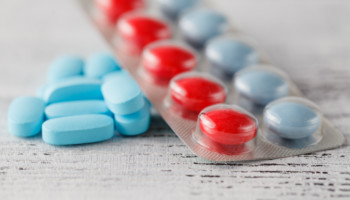The specialised Section No. 15 of the Appeal Court of Barcelona has recently clarified what indirect infringement means by its judgment of 13 November 2020 (rapporteur Justice Rodríguez Vega, No. 2410/2020, Ortho.pras kits). This decision departs from the approach in other judgments which minimised the difference between direct and indirect infringement, treating them in a substantially equal manner [like the 24 October 2012 (nº 541/2012) Supreme Court judgment (the mop case) and in 14 July 2016 Appeal Court of Barcelona judgment (Kaba key case)].
Prior to this decision, the Appeal court of Barcelona analysed quite thoroughly indirect infringement in the pregabalin litigation (Preliminary injunction proceedings nº 650/2016, decision of 5 July 2016). The pregabalin 2016 decision aligned with the position in most European countries concerning pregabalin and imposed on the generics MA holders the burden of adopting specific measures to avoid the off-label use of pregabalin for the treatment of neuropathic pain. These measures consisted in the generics informing their clients that pregabalin could not be used for the patented indication and the obligation to reject the supply of the product to clients where there were reasonable indicia of infringement of the patent.
The Ortho.pras kit case judgment casts further light in this vexata quaestio (what constitutes indirect or contributory patent infringement) and also on other matters (like the statute of limitation in patent cases) and on top of that it has been magnificently written, in a crisp and concise language, which is very much appreciated. The judgment is not stricto sensu a revirement, but introduces nuances in the previous pregabalin decision, which would help companies and practitioners to adequately avoid or detect patent infringement. This can also be explained because the 2016 decision was a Preliminay Injunction decision and the 2020 judgment decided a case on the merits.
There are two points in the Ortho.pras kit judgment: the first one is the definition of staple products and, the second is the relevance of instructions contained in a diagnostic kit, whether they can be considered as an incitement to infringement.
Staple products are defined by the Ortho.pras kit judgment as any product that has at least a non-infringing use. This is especially relevant in the field of second and further medical indications, because, by definition, in these cases there are other indications that do not infringe. Therefore, generic medicaments would be considered staple products except in those cases in which the patent covers the first medical indication.
The second point is also of importance. In this case the Ortho.pras judgment qualifies “incitement” as an element of the definition of indirect infringement by the supply of staple products. In order to qualify the activity as indirect infringement, the supplier must give information to the recipient or user of the kits that must be decisive for the implementation of the patented invention and this information must not be known by the recipients or users of this information. In the case, the information concerning the use of the diagnostic kit did not meet this threshold, as the recipients of the allegedly patent relevant information (who were persons skilled in this particular field) would already know the information provided to them. This second aspect of the decision is not so relevant for generic companies, as they normally carve out the SmPC and do not devise advertising that would mention the patented indication (skinny label). But it certainly shows a departure from pregabalin case.
This landmark decision is also a welcome consequence of the dialogue between jurisdictions, in this case the Appeal Court of Barcelona seems to have had in mind the 14 November 2018 UK Supreme Court pregabalin judgment. The UK Supreme Court in pregabalin case obiter dictis and pluribus vocibus -there were three opinions- maintained a nuanced position concerning direct infringement of a Swiss-claim and denied indirect infringement. The Supreme Court maintained that Swiss-type claims protect the manufacture of the medicament, but not the use of the medicament in patients and therefore the conclusion was that there was no indirect infringement (departing from the decision of the UK Court of Appeal). As to direct infringement, the UK Supreme Court decision is probably not very relevant, as, contrary to Spanish practice, UK courts deem that Swiss-type-claims and use claims are fundamentally different.
The rejection of indirect infringement in the pregabalin UK judgment resonates probably in the recent judgment of the Appeal Court of Barcelona and the conditions imposed in the qualification of indirect patent infringement.
Let’s hope that Brexit would not put an end to this jurisdictions’ dialogue and UK Courts decisions will still be analysed by their colleagues in the EU.



